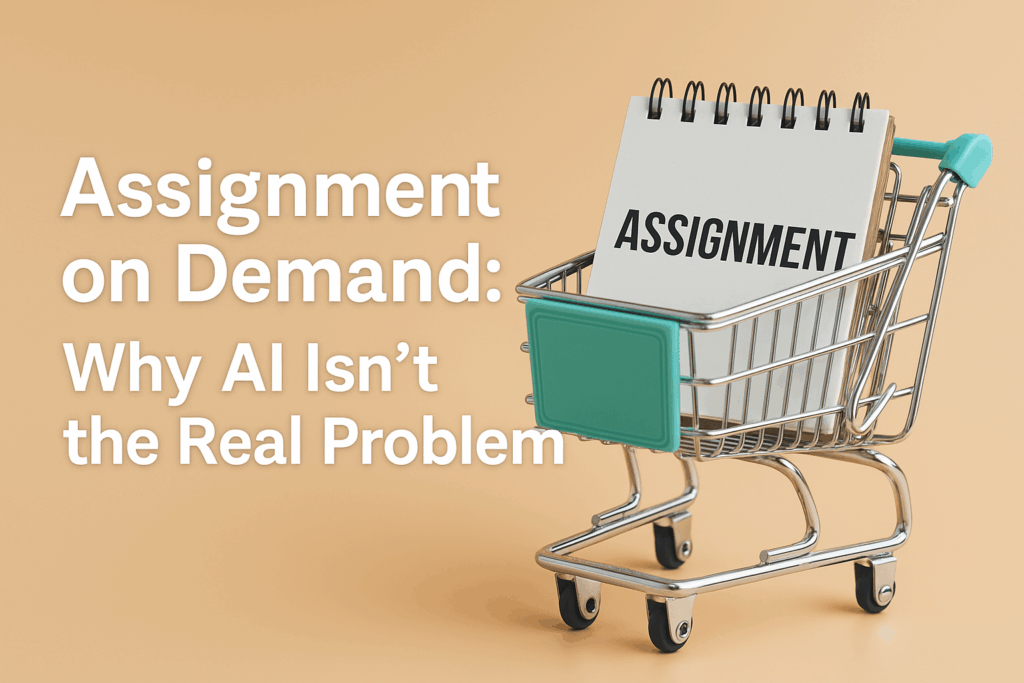Date Published: 7 June 2025
By Ts. Dr. Suhailah Mohamed Noor | Prompt Academy

The Rise of “Assignment as a Service” Culture
Recently, a Facebook ad popped up on my feed. At first glance, it looked like any other small business promotion. But instead of skincare or food delivery, it was offering full writing services for assignments, theses, SPSS analyses, and even take-home exams. Complete with WhatsApp links, price lists, and happy “clients” sharing how they passed their viva — all delivered as if it were a legitimate tutoring service.
This is not an isolated case. A simple search reveals dozens of similar pages advertising assignment help services for diploma, degree, and master’s students — in both Bahasa Melayu and English — openly, aggressively, and without apology.
The Real Issue Isn’t the AI. It’s the Assessment.
While many academics are quick to blame AI tools like ChatGPT for eroding academic integrity, the real issue lies deeper. These services didn’t appear because AI exists. They thrive because too many assessments are still easily replicable, answer-focused, and devoid of authentic student thinking.
When an assignment:
- can be done by anyone,
- doesn’t require personal insight or justification,
- focuses only on “the right answer,”
…then students will always be tempted to outsource it — whether to a friend, a ghostwriter, or an AI chatbot.
From AI-Proof to AI-Aware Assessment
Some universities respond by trying to “AI-proof” assessments — using lockdown browsers, surprise tests, or obscure question framing. But this reactive approach creates more fear than learning.
A more constructive path is AI-aware assessment. Instead of banning AI, we integrate it thoughtfully. We design tasks that expect students to use AI, but also to think critically about it.
In my own structural engineering course, students are asked to:
- Choose a real-world truss structure,
- Use AI tools to explore possible load cases and assumptions,
- Perform classical analysis manually, and
- Reflect on their AI interactions: What did it help with? What did it miss? What ethical questions did it raise?
By embedding prompting and reflection into the assessment itself, we reframe AI not as a shortcut, but as a cognitive partner that still requires human judgment.
We Can’t Stop the Ads, But We Can Make Them Irrelevant
We may not be able to stop “Best Assignment Help” or similar businesses from advertising on Facebook. But we can design tasks that cannot be outsourced.
When an assignment requires:
- Personalized prompt engineering,
- Student reflection on AI outputs,
- Analytical justification linked to real-world contexts,
…no ghostwriter or AI alone can fake that. The only person who can complete the task is the student themselves.
Closing Thoughts
AI isn’t the real enemy. The deeper threat lies in assignments that allow students to disengage from thinking. If the task doesn’t demand their reasoning, judgment, and voice — someone else will gladly step in to provide it.
Let’s not rely solely on Turnitin scores or AI detectors. Let’s build assignments that are truly AI-aware — so that integrity is not enforced, but designed into the learning process itself.